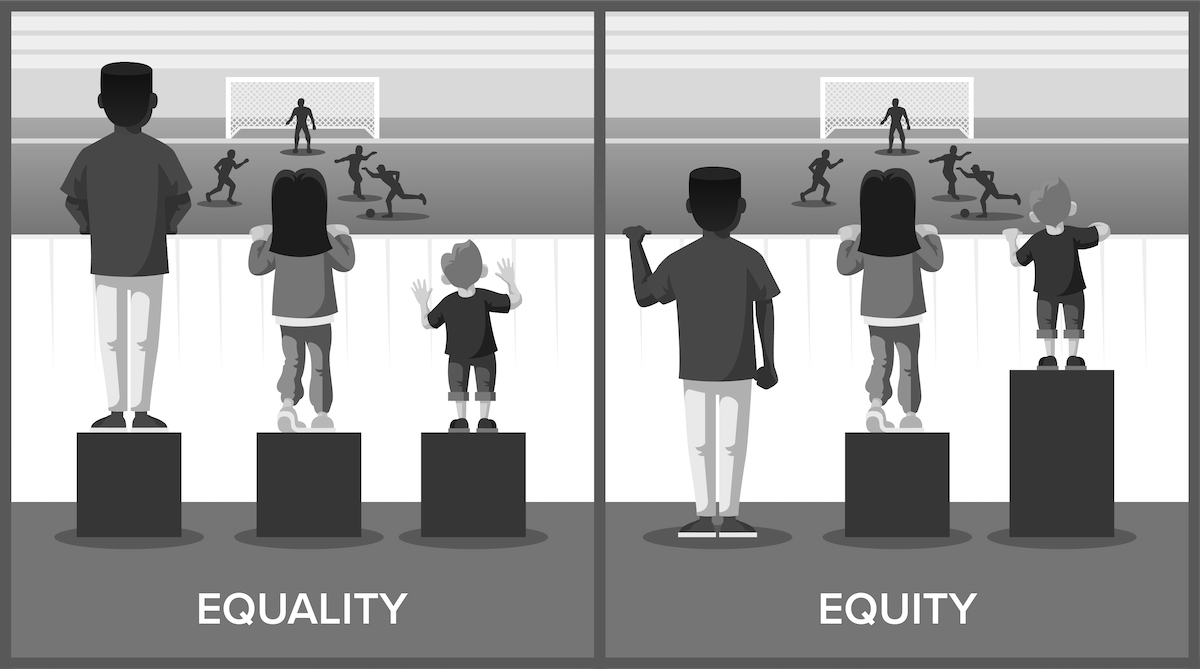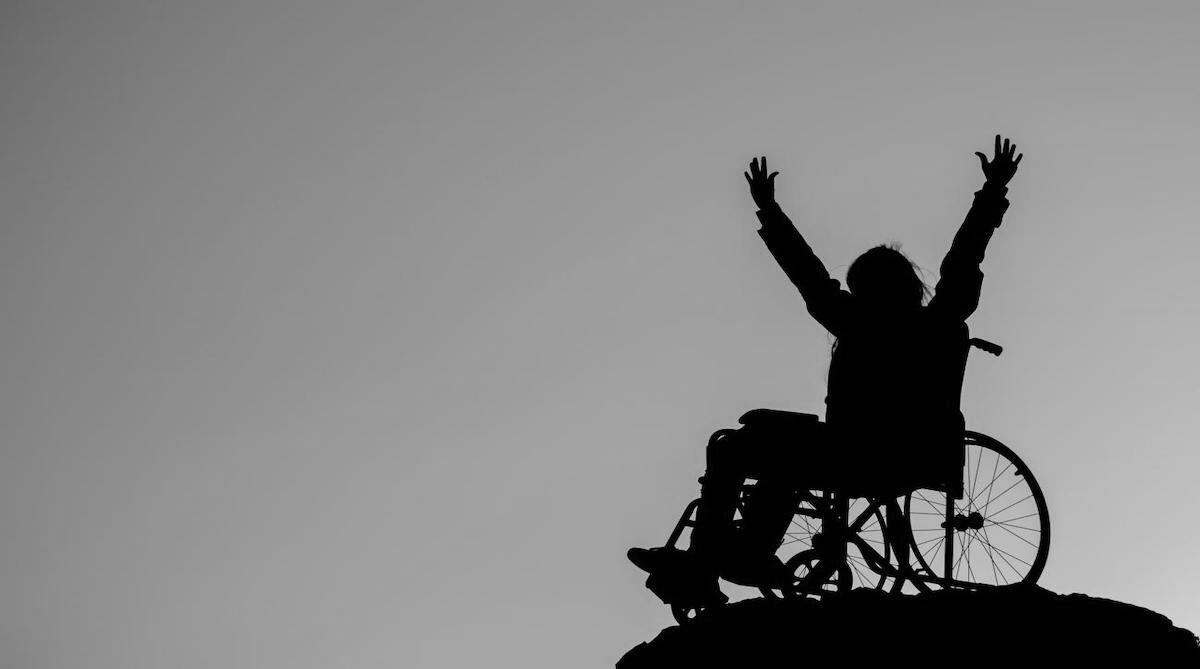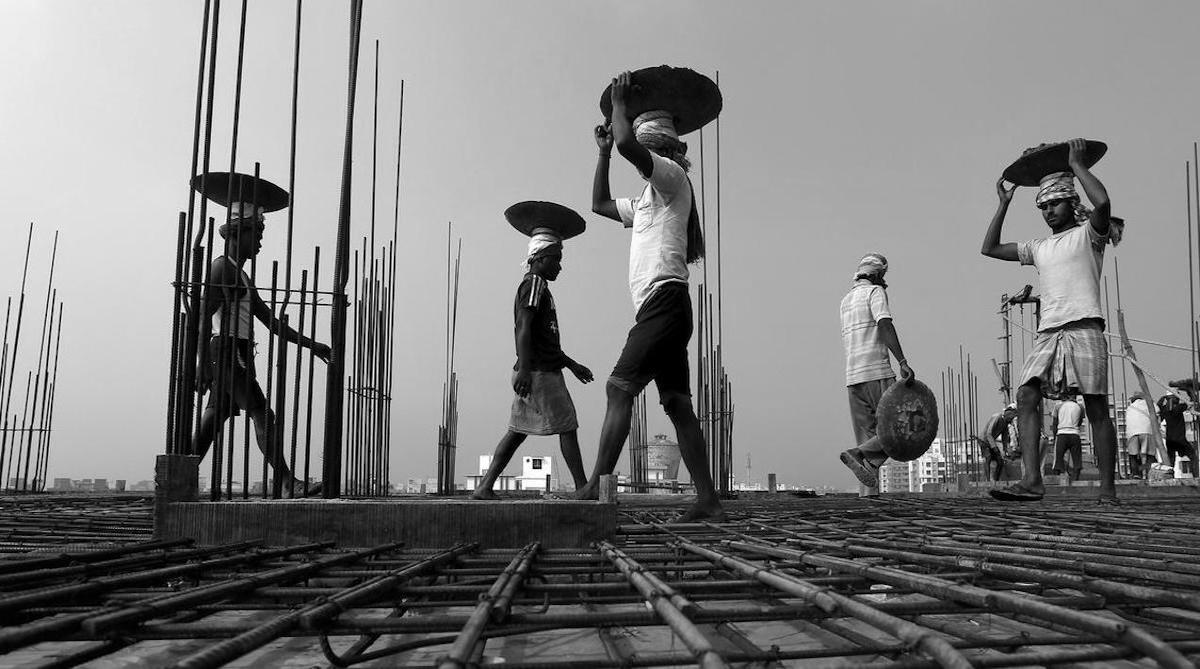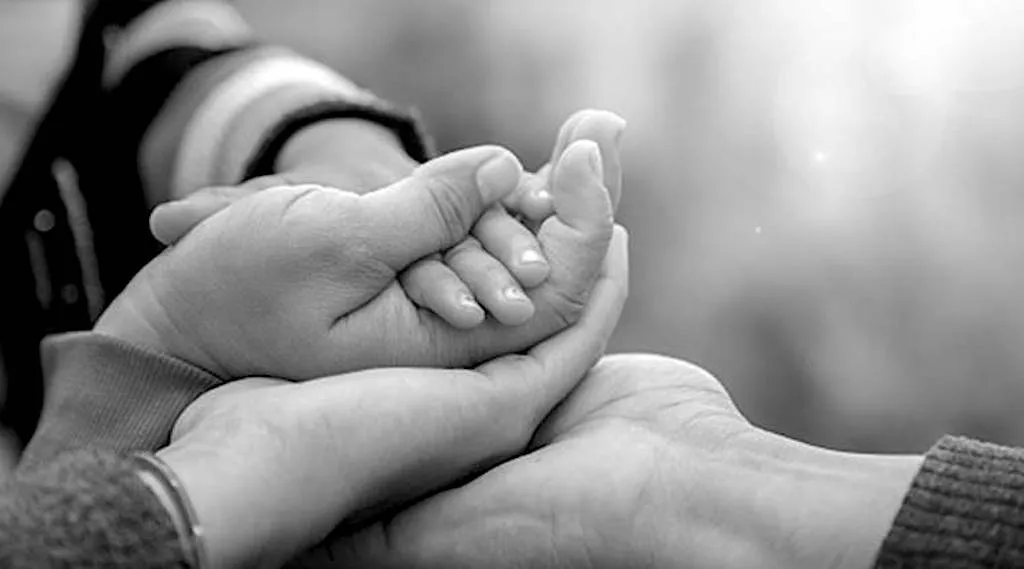Equity and equality be congruent for women? - Laws Around Us
26 Sep, 2019

Occasionally I cogitate about jurisprudence issues pertinent to women and gender equality impelling me to figure a possible decoction to them. Exemplars being: Does any nation give abridged equality to women? Is our existence construed by our gender? Is there no sodality left in the society or have we become indurated to ignore the subtle yet vital differences related to the basic rules of natural justice pertaining to gender parity?
Why do people obfuscate between equity and equality? And in the specific case of India, does having a female Defence Minister ensure equality and illustrate the métier of women per se? A scrutiny of on-the-ground reality reveals that things are not as fair and just as they appear or are made out to be in the textbooks. Help me unearth the commonalities between a domestic help working ceaselessly for over 10 hours a day for a remuneration of approximately £120 per month and a leading actress being compensated over half a million British Pounds for a 5 minute appearance?
On the face of it, I espy both are employed & work diligently to sustain what they have achieved. But would you regard the treatment given to them as equal or equitable? Are we prejudiced when we put the celebrity who beguiles us for her benefit at a higher pedestal but disparage the domestic help who contributes notably to the homemaker? When we are fair, just and impartial towards all sections of the society on the principles of unbiased dealing, we adhere to the principles of equity and good conscience.
Equity comprises of taking efforts to comprehend and provide what people need, to enjoy their lives to the fullest. Equality intends to ensure that everyone gets the same things in order to enjoy their lives to the fullest. Like equity, equality too aims to promote fairness and justice, but by treating everyone as same or identical. But I perceive a model of rectitude can only be ensured if both equity and equality exist congruently.
An illustration to the above could be an athletic racing event on an oval track. The concept of equality would have us treat the runners in exactly the same way, which implies ensuring that they all start at the same time and the same place on the track. On the surface, this appears fair but we are aware that runners in the inside tracks have a distinct advantage over runners in the outer tracks, as the distance they have to travel is comparatively shorter. As a consequence, equality – starting at the same place and same time– doesn’t result in fairness in this case.
Appending the concepts of equity, we recalibrate the starting positions of the runners in order to counterpoise the detriments faced by those in the outer tracks. Here a bespoke path to fairness and justice is concocted by applying principles of equality and equity congruently. While exploring the concept of equity and women in India, we find that such a notion hardly exists. In fact, I believe this indistinguishable scenario exists in most if not all parts of the globe.
The feminists amongst us make noise about gender equality but no one shows an eye of concern for gender equity or equity within the genders. Women who cry discrimination have been found to pretermit compassion & consideration towards fellow women. We create or choose to create differentiators between people on the grounds of literacy, sexual orientation, wealth, employment, race and in the case of India, caste. Such differentiators prod us to alter our behaviour towards such conceived groups to suit our own needs or perceived benefits. . Our tendency to be judgmental and a penchant for discriminatory behaviour often propel well-meaning activism to yield skewed results. As case in point being women rights activist usually demand equality with men but fail to demand equity.
Can we not get both so that there is parity between genders? I do realise that such an idealistic society is hard to achieve, however we are erroneous in saying that equal opportunities ensure equality! Gender equity means fairness of treatment for both the genders as per their respective needs. Gender equality is more than equal exemplification; it is powerfully tied to women’s rights, and often entails policy changes. While we are considered equal in the eyes of law, it attenuates when the law is implemented.
For instance, in most cases related to the Sexual Harassment of Women at Workplace (Prevention, Prohibition and Redressal) Act, 2013, it has been found that the mandatory Internal Complaints Committees (ICC) has never been set up or defined by the organisations. The law also mandates only one neutral member (outsider) in the committee and hence the constituents of such a committee are employees reporting to the management. Seldom has been seen that someone has testified against the perpetrators, for the fear of a reprimand always exists.
Can we ensure justice and fairness in such a lop-sided scenario? The lack of awareness about such laws even amongst the more prominent and successful women compels us to think how does one propagate this? The lack of an Internal Complaints Committee in our own temple of justice- the judiciary, speaks volumes. A female defence minister has been a high point off late on the topic of gender equality in India and yet the world has probably not forgotten that India had a female prime minister much earlier. We were not pioneers in having a female leader at the helm, a much smaller neighbour, Sri Lanka, had the world’s first female prime minister 6 years ahead of us! The diktats from quasi- government bodies about women using cell phones or wearing jeans are not uncommon; some educational institutes too have had similar restrictions for females only.
The dichotomy of the society frequently suggests towards the hypocrisy. The role models in the country do not reflect the true status of women in this country. While we can demand gender equality in any manner we deem fit, be it via activism or by legislation, it may not impact those who need it the most. Education and awareness about the same could act as a catalyst to bring about a paradigm change in attitudes and thus ensure that gender equality is achieved on the ground.
In the process, we should not ignore gender equity. Equity and equality are inter-related: Equity is the means, equality the outcome. Understanding the parallel use of equity and equality would help us recognize and respond to differences that exist and rectify what is unfair, preventable and changeable. While in the true sense, India continues to lag in gender equality & equity, especially when compared to more developed countries, the bugle has been sounded.
Latest Post

26 Sep, 2019

26 Sep, 2019

26 Sep, 2019

23 Sep, 2022

23 Sep, 2022

23 Sep, 2022